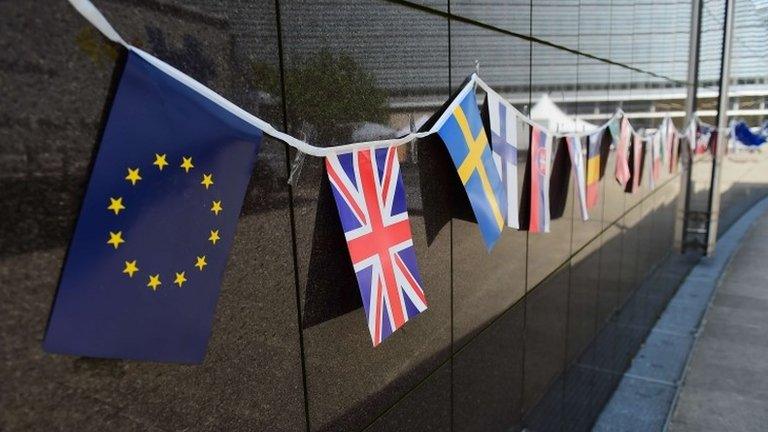Cameron's EU demands: Sham drama or bitter fight?
- Published
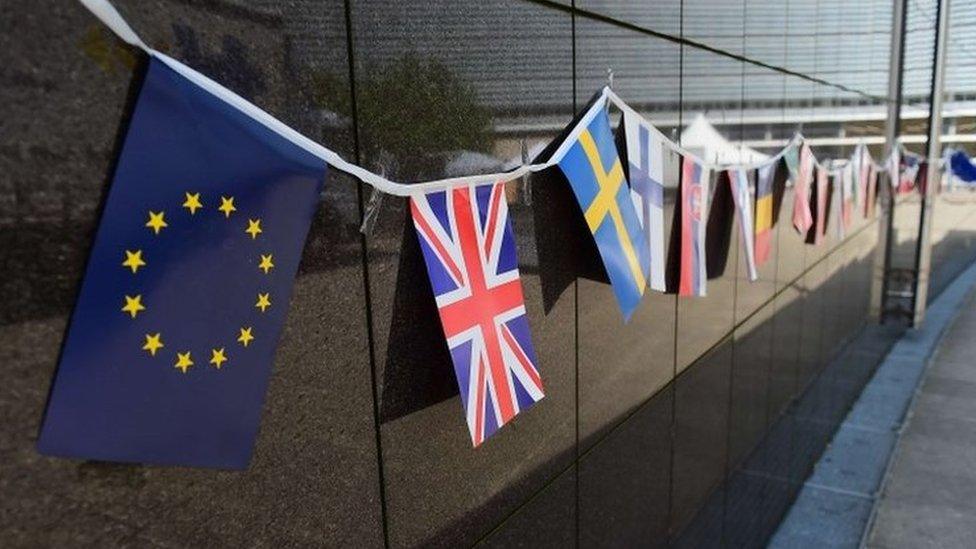
EU leaders fear the UK's demands might inspire other member states to do the same
Let the show begin! EU leaders in Brussels and across the continent have had a lot of time to ponder their eventual response to British Prime Minister David Cameron's wish list when it appeared in writing.
They have all been clear up till now that they want the UK to stay in the EU.
Why then immediately highlight problems?
The presidents of the European Parliament and the European Commission chose to respond to Mr Cameron's letter and speech today with words of warning - describing his EU reform ideas as "problematic" and highlighting possible legal issues.
Why?
I would argue this is because the European Union realises the British prime minister needs a fight and a bloody nose to drown out criticisms back home that this EU reform process is a sham; that Mr Cameron's demands are wishy-washy and worthless.
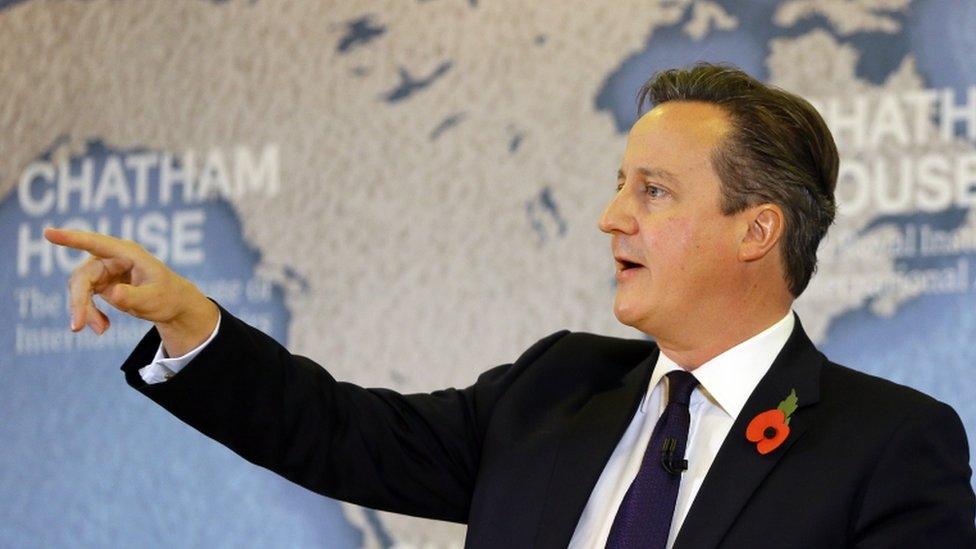
Mr Cameron's proposals will now be the focus of negotiations with the UK's 27 EU partners
They realise he needs a sense of drama. Of a bitter battle fought and won. And they are preparing to give it to him.
But there are also some very real difficulties with the changes to the EU that David Cameron demands from a European perspective.
And they will emerge in the "hows" rather than the list of "whats".
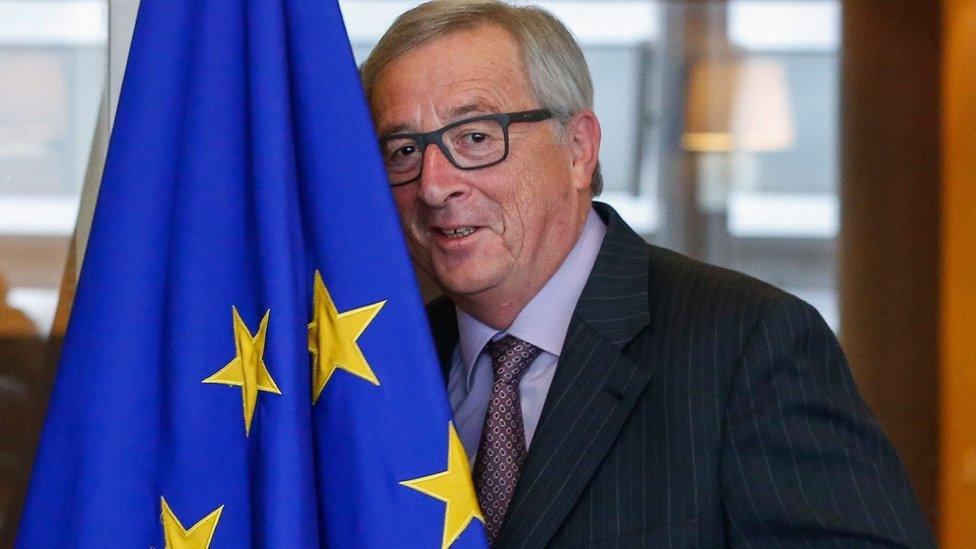
Commission President Jean-Claude Juncker has said he wants a fair deal but some of the UK's ideas are seen as "problematic"
Exactly how the Prime Minister's demands can be implemented will be the focus of negotiations that will now get underway in earnest with his 27 EU partners.
For example, the first objective "to protect the single market for Britain and for others outside the eurozone" has a lot of backing in other European capitals but will the UK insist on a veto on eurozone legislation?
That will be a lot more difficult to achieve than a vote.
Excluding Britain from the idea of ever-closer union has caused a fair amount of eye-rolling but few objections in EU circles.
The same goes for giving national parliaments more of a say in forming EU legislation. That option already exists, (though is little-used) and could easily be tweaked.
But curbing EU migration is problematic.
Though here, again, a number of the British ideas are welcomed by the majority of other European countries - such as restricting the freedom to work across the EU of citizens from new member states (until their economies have caught up with the EU average).
There is also broad agreement on cracking down on welfare tourism and limiting child benefits and out-of work benefits for migrants.
The real problem is centred around in-work benefits.
David Cameron insists that the UK be allowed to limit them for non-British EU workers for four years.
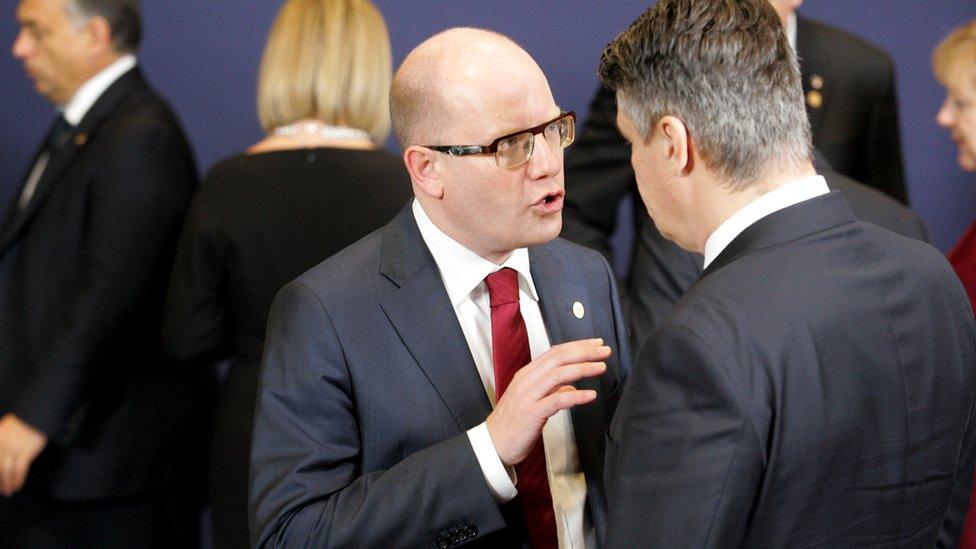
Czech PM Bohuslav Sobotka has said his country will insist on the right to free movement
Central and Eastern European countries with a fluid workforce, such as Poland, are loud opponents of the proposal (though privately they say they would be happy if their best and brightest would think twice before abandoning their homeland).
But it is powerhouse Germany that will be the hardest obstacle to overcome here.
Discriminating against EU workers goes against one of the bloc's founding principles - the freedom to live and work anywhere in the European Union.

Britain's four key objectives for renegotiation:
Protection of the single market for Britain and other non-euro countries
Boosting competitiveness by setting a target for the reduction of the "burden" of red tape
Exempting Britain from "ever-closer union" and bolstering national parliaments
Restricting EU migrants' access to in-work benefits such as tax credits

Once again, though, every German diplomat or politician I have spoken to about this says Germany will do its utmost to accommodate the UK in all its reform demands.
Big EU players, such as France and Germany regard this EU renegotiation process as a bit of an annoyance they want to get over with quickly.
Many privately say they think this is more of an internal Conservative Party issue for Mr Cameron, but the feeling is they will play ball with the aim of moving on as soon as possible as an EU of 28 countries to deal with what they view as the really important matters facing them: not Brexit, but rather migration.
Credibility and cohesion
There are three main reasons why the EU wants the UK to stay.
Firstly there is a rather painful awareness that, without Britain, the bloc would be economically, politically, militarily and diplomatically weaker.
Then there is the fear of contagion.
Brussels frets when Mr Cameron says the EU must show it is flexible enough to suit the needs of all its member states.
There is a worry that the UK might inspire other countries' governments, opposition parties or popular movements to insist they get their own EU deal to better suit their individual needs.
And finally there is a concern that Brexit could be the straw that breaks the camel's back of the EU as a whole.
The bloc's credibility and cohesion have been hugely damaged by the current migrant emergency and the still far from resolved euro crisis.
Diplomats across the EU whisper that Brexit could lead to the unravelling of the EU as a whole, encouraging other countries to quit (such as Hungary over migration) when conditions no longer suit.
- Published11 November 2015
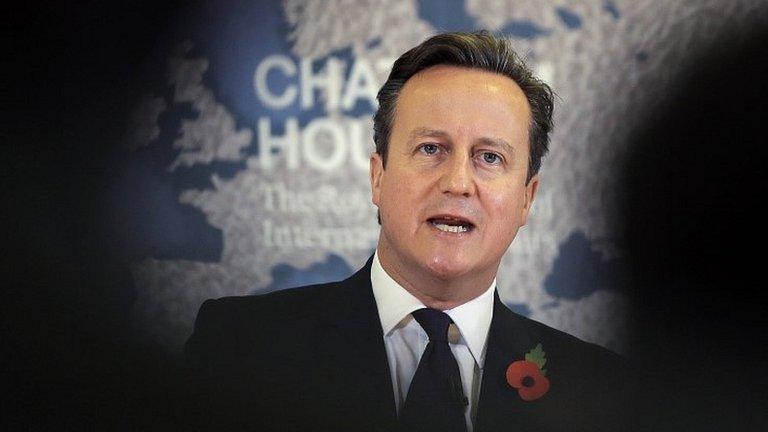
- Published9 November 2015
- Published30 December 2020

- Published17 February 2016
